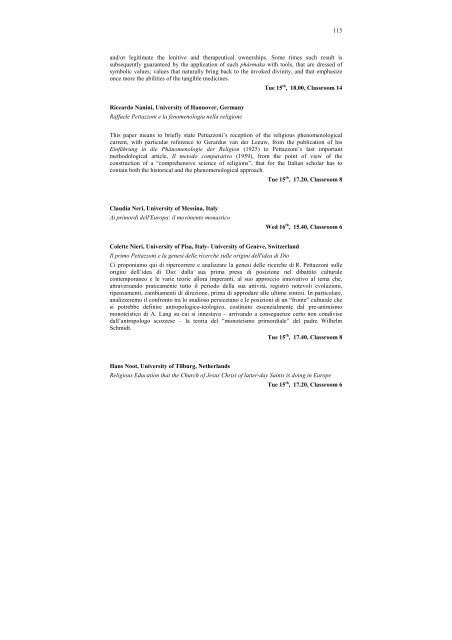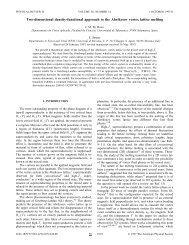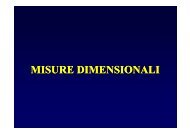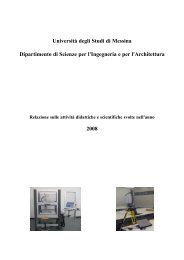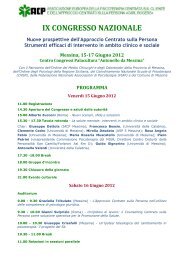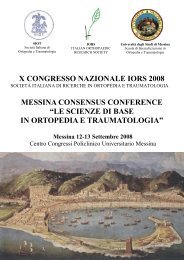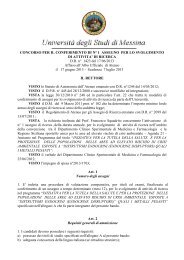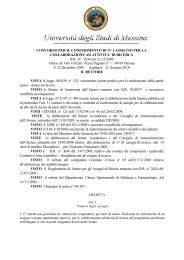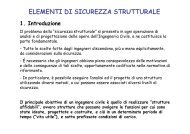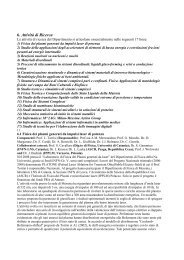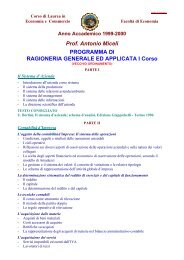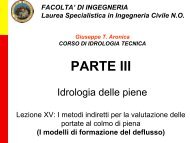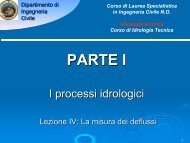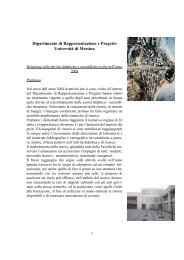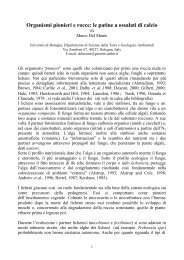PROGRAMME AND ABSTRACTS - Università degli Studi di Messina
PROGRAMME AND ABSTRACTS - Università degli Studi di Messina
PROGRAMME AND ABSTRACTS - Università degli Studi di Messina
You also want an ePaper? Increase the reach of your titles
YUMPU automatically turns print PDFs into web optimized ePapers that Google loves.
115<br />
and/or legitimate the lenitive and therapeutical ownerships. Some times such result is<br />
subsequently guaranteed by the application of such phármaka with tools, that are dressed of<br />
symbolic values; values that naturally bring back to the invoked <strong>di</strong>vinity, and that emphasize<br />
once more the abilities of the tangible me<strong>di</strong>cines.<br />
Riccardo Nanini, University of Hannover, Germany<br />
Raffaele Pettazzoni e la fenomenologia nella religione<br />
Tue 15 th , 18.00, Classroom 14<br />
This paper means to briefly state Pettazzoni’s reception of the religious phenomenological<br />
current, with particular reference to Gerardus van der Leeuw, from the publication of his<br />
Einführung in <strong>di</strong>e Phänomenologie der Religion (1925) to Pettazzoni’s last important<br />
methodological article, Il metodo comparativo (1959), from the point of view of the<br />
construction of a “comprehensive science of religions”, that for the Italian scholar has to<br />
contain both the historical and the phenomenological approach.<br />
Clau<strong>di</strong>a Neri, University of <strong>Messina</strong>, Italy<br />
Ai primor<strong>di</strong> dell'Europa: il movimento monastico<br />
Colette Nieri, University of Pisa, Italy- University of Genève, Switzerland<br />
Il primo Pettazzoni e la genesi delle ricerche sulle origini dell'idea <strong>di</strong> Dio<br />
Tue 15 th , 17.20, Classroom 8<br />
Wed 16 th , 15.40, Classroom 6<br />
Ci proponiamo qui <strong>di</strong> ripercorrere e analizzare la genesi delle ricerche <strong>di</strong> R. Pettazzoni sulle<br />
origini dell’idea <strong>di</strong> Dio: dalla sua prima presa <strong>di</strong> posizione nel <strong>di</strong>battito culturale<br />
contemporaneo e le varie teorie allora imperanti, al suo approccio innovativo al tema che,<br />
attraversando praticamente tutto il periodo della sua attività, registrò notevoli evoluzioni,<br />
ripensamenti, cambiamenti <strong>di</strong> <strong>di</strong>rezione, prima <strong>di</strong> approdare alle ultime sintesi. In particolare,<br />
analizzeremo il confronto tra lo stu<strong>di</strong>oso persicetano e le posizioni <strong>di</strong> un “fronte” culturale che<br />
si potrebbe definire antropologico-teologico, costituito essenzialmente dal pre-animismo<br />
monoteistico <strong>di</strong> A. Lang su cui si innestava – arrivando a conseguenze certo non con<strong>di</strong>vise<br />
dall’antropologo scozzese – la teoria del “monoteismo primor<strong>di</strong>ale” del padre Wilhelm<br />
Schmidt.<br />
Hans Noot, University of Tilburg, Netherlands<br />
Tue 15 th , 17.40, Classroom 8<br />
Religious Education that the Church of Jesus Christ of latter-day Saints is doing in Europe<br />
Tue 15 th , 17.20, Classroom 6


